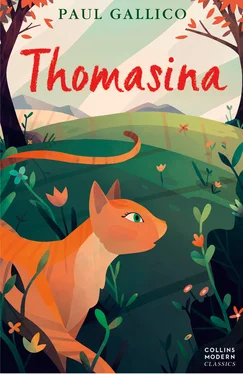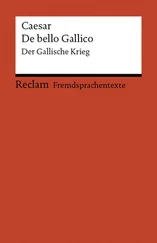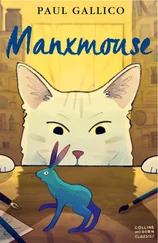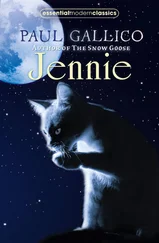“Get another dog,” MacDhui replied. “It shouldn’t be difficult. The village is full of them.”
“Och, how can you be speaking like that? It would not be Rabbie. Can you not be giving him a wee bit of medicine that will keep him going till he gets well? He’s been a very healthy dog.”
Animals, reflected Mr MacDhui, were never a problem, it was the sentimentality of their owners that created all the difficulties. “The dog must die soon,” he said. “He is very old and very ill. Anyone with half an eye can see that his life has become a burden to him and that he is suffering. If I gave him some medicine you would be back here within a fortnight. It might prolong his life for a month, at the most six months. I am a busy man,” he concluded, but then added more gently: “It would be kinder to make an end to him.”
The quivering of her chins now had spread to her small mouth as Mrs Laggan looked fearfully into the day that would be without Rabbie; no one to talk to, no one to whose breathing she would hearken whilst she had her evening cup of tea, or lay in bed at night. She said what came into her head, but not what was bursting in her heart. “The customers who come to my shop will miss Rabbie sore if he’s not there for them to be stepping over.” But she was meaning: “I’m an old woman. I have not many days left myself. I am lonely. The dog has been my companion and my comfort for so long. He and I know one another’s ways so well.”
“Yes, yes, Mrs Laggan, no doubt. But you must make up your mind, for I have other patients waiting.”
Mrs Laggan looked uneasily to the big, vital man with the red moustache and beard.
“I suppose I shouldn’t be selfish if poor Rabbie is suffering …”
Mr MacDhui did not reply, but sat waiting.
Life without Rabbie – the once cold nose pressing against her hand, the edge of pink tongue that protruded when he was contemplative, his great sigh of contentment when he was fed full – but above all his presence; Rabbie always within sight, sound, or touch. Old dogs must die; old people must die. She was minded to plead for the bit of medicine, for another month, a week, a day more with Rabbie, but she was rushed and nervous and fearful. And so she said: “You would be very gentle with him –”
MacDhui sighed with impatient relief: “He will not feel a thing, I assure you.” He rose. “I think you are doing what is right, Mrs Laggan.”
“Very well, then. Make away with him. What will it be I’ll be owing you?”
The vet had a moment’s pang brought on by the sight of the trembling lips and chins and cursed himself for it. “There will be no charge,” he said curtly.
The widow Laggan regained sudden control of her face and her dignity, though her eyes were wet. “I’ll be paying you for your services—”
“Two shillings, then.”
She paid out of a small black purse, setting the florin on to his desk with a snap that caused Rabbie to prick up his greying ears for a moment. Without another glance at her oldest and dearest friend, Mrs Laggan made for the door. She held herself as proudly and erectly as she could, for she would not be a fat old woman dissolving into grief before this hard man. She bore up to pass through and close it behind her.
Thin women in sorrow have both the faces and figures for bleakness and woe, but there is nothing quite as futile and shaking as the aspect of an obese woman in affliction. The small mouth unable to form into the classic lines of tragedy can but purse and quiver. Grief is bowed, but fat keeps the stout woman’s curves constant, except that the flesh suddenly greys and looks as though the juices of life had gone out of it for all its roundness.
When the widow Laggan emerged from the surgery and entered the waiting-room once more, all eyes were turned upon her, and the Rev. Peddie recognised the symptoms at once, got up and went to her, crying: “Oh, dear – don’t say that something ill has befallen Rabbie. Is he to remain in hospital?” And then he echoed the prior remarks of the widow. “Why, whatever would the town do without the presence of Rabbie across the doorstep?”
Safe within the circle of her own people, Mrs Laggan could let the tears flow freely as she told of the sentence passed upon her friend. “The doctor said it would be better if he were to be put away just now. Why must the ones we love always go while we are remaining behind? Och, it will not be the same any more without Rabbie. But I’m thinking I’ll be following him soon and it will be all for the best.” She dabbed at her eyes with a cotton handkerchief and essayed a smile. “Do you remember how Rabbie would be blocking the door, and all the gentry would be raising up their knees to pass over him?”
It was so small a thing that had happened, yet the waiting-room was stiff with the tragedy of it, and Mr Peddie felt the horror clamped like a hand about his heart, squeezing that member until it felt in some similar measure the pain that was oppressing the widow Laggan. Mr Peddie had one of those awful moments to which he was prone when he could not decide what it was that God would wish him to do, what God Himself would do, were He to stand there with them all in the presence of the misery of the widow Laggan.
For to Mr Angus Peddie there was neither gloom nor sourness, nor melancholy about either the God or the religion he served. Creation and the world created, along with the Creator were a perpetual joy to him and his mission seemed to be to see that his flock appreciated and was properly grateful for all the wonders and beauties of nature, man and beast as well as the great and marvellous unexplained mysteries of the universe. He did not try to explain God, the Father, or the Son, but worked to help his people love and enjoy Him. A man of unusual tolerance and breadth of vision, he believed that man could deny God for a time, but not forever, since God was so manifest in everything that lived and breathed, in things both animate and inanimate, that He was universal and hence undeniable.
And yet, human being that he was, he felt the panic when his God seemed to turn His back upon the likes of the widow Laggan and his own warm heart was riven with pity for her plight.
There stood a weeping fat woman dabbing at her eyes with a small cloth, the tears straggling unevenly over the curves of her cheek and her triple chins quaking and jouncing. And in a moment she would walk out of there and begin to die.
Peddie felt the strong push of the impulse to rush into the surgery of Mr MacDhui crying: “Stop, Andrew! Don’t kill the animal. Let it live out its time. Who are you who hate him to play God?” but he resisted it. What right had he to interfere? MacDhui knew his business, and veterinary surgeons, just as doctors, frequently had to make decisions and break news that was painful to people, except that to the former was sometimes given the additional mercy of destruction to save pain and suffering.
Mrs Laggan said once more, speaking as though to herself: “Twill no be the same wi’out Rabbie,” and went out. Mr MacDhui’s beard came in through the door again and he stood there a moment regarding them all truculently as though experiencing some remnant of the scene that had just taken place and the sympathy engendered for the old woman.
He asked: “Who’s next?” and his countenance took on an even greater expression of distaste when the Glasgow builder’s wife with the Yorkshire terrier half arose irresolutely from the hard, waiting-room chair and the dog gave a shrill yelp of terror.
A small voice said: “Please, sir, could you spare a moment?”
Someone remarked: “It’s little Geordie McNabb, the draper’s boy.”
Geordie was eight. He wore khaki shorts and a khaki shirt and the kerchief of the Scout Wolf Cubs. He had a round, solemn face with dark hair and eyes and a curiously Chinesey cast of countenance. In his grubby hands he clasped a box and in the box palpitatingly reposed his good deed for that day. MacDhui strode over to him overpoweringly, overtoweringly, looming over him like a red Magog, thrusting his bristling beard nearly into the box as he boomed: “Well, lad, what is it you want?”
Читать дальше












